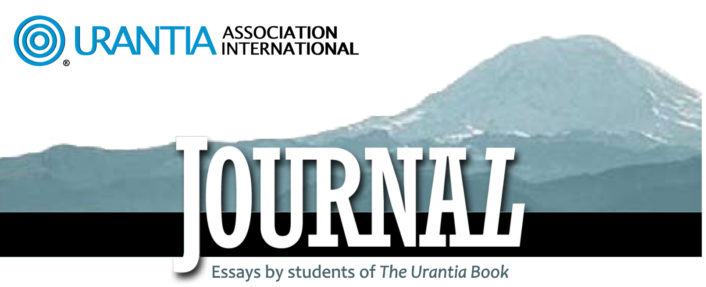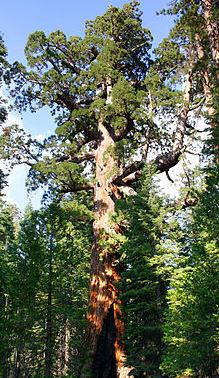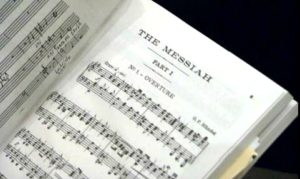© 2017 Suzanne Kelly, Charles Laurence Olivea, Neal Waldrop
© 2017 International Urantia Association (IUA)

¶ In This Issue
- Journal Editorial May 2017 – Suzanne Kelly
- The Temple of Spiritual Brotherhood and the Greater Meaning of Study Groups – Charles Laurence Olivea
- The Hallelujah Aftermath – Neal Waldrop, USA
- About the Journal
¶ Journal Editorial May 2017
Suzanne Kelly

Greetings Fellow Journal Readers,
Welcome to the digital age of 2017 and the new digital format for the Journal. Starting this year, we will be producing two issues of the Journal — one in May and one in November. If there is a conference, we might publish an additional issue with transcripts of the plenaries and presentations. If you wish to continue to receive a hard copy via regular mail, it can be arranged. (The copy would be a printout of the online version.) The new subscription cost for hard copies is $10 a year for two issues. As in everything, onward and upward.
In this May edition, we have two engaging articles for your enjoyment and edification. The first near and dear to the dissemination of the philosophies and teachings of The Urantia Book is The Temple of Spiritual Brotherhood and the Greater Meaning of Study Groups, by Charles Laurence Olivea. In his warm and colorful comparisons and analogies, Charles personalizes and engages the reader as he shows us how to
“…go beyond the role of being merely readers of the book; we are more in the role of students looking for Living Water and the Bread of Life. A student in this context may be defined as an attentive, systematic observer, who is engaged in mind and soul as a cosmic citizen growing with the Supreme.”
Charles tackles the nature and morontial significance of study groups, their structure and leadership, the repercussions of their achievement, and
“With God the Supreme, achievement is the prerequisite to status—one must do something as well as be something.” [UB 115:0.1] (Emphasis added)
¶ The Temple of Spiritual Brotherhood and the Greater Meaning of Study Groups
Charles Laurence Olivea

Great trees possess a majestic presence, such as the Grizzly Giant of the Sequoia Forest in Yosemite, California. It is quite interesting, even instructive, to reflect upon the fact that they begin as small seedlings, emerging as saplings, and over a long period of time grow to become nature’s monarchs.
Likewise, study groups are establishing roots for a great movement, whose aim over time is to disseminate The Urantia Book and its teachings, having a transformational influence on the world. Study groups may very well constitute the primary engine to achieve the necessary momentum toward human planetary destiny. But to be successful this movement must be nourished by living spiritual virtues of truth, beauty and goodness. Then the world, someday, will be able to see a majestic fraternity of men and women who exemplify the principle of universe unity made possible by higher teachings of God’s light and life. We, students of The Urantia Book, past, present and future, have been given the opportunity to help make this possible.
The socialization or spread of the Fifth Epochal Revelation through a growing network of study groups will depend on what participants bring to such gatherings and by what they take from them. The interactions between persons, when done in a revelatory search for God, can tap into the spirit of his grace, thereby, raising human consciousness. Remember, the search for God is nothing less than the search for the source and center of all things and beings. What’s more, an Archangel of Nebadon reassures us that
…knowledge is possessed only by sharing; it is safeguarded by wisdom and socialized by love. [UB 48:7.28]
A Solitary Messenger reinforces this point by the generalization that
Personality cannot very well perform in isolation. Man is innately a social creature; he is dominated by the craving of belongingness. [UB 112:1.6]
To know others who share kindred minds and souls is the great immediate benefit of study groups. The thesis offered in this essay concerns the living rationale for individual persons to meet in study on a regular basis seeking God intellectually and spiritually.
¶ The Hallelujah Aftermath
Neal Waldrop, USA

In recent years, Internet websites have displayed at least five semi-viral videos showing members of a choir and orchestra who had surreptitiously infiltrated the central court of a large department store or shopping mall, and then—to the surprise and delight of the assembled shoppers, who had merely migrated to their favorite site for shopping so as to purchase gizmos or doodads or what-ever else may have caught their fancy—suddenly arose from their seats and emitted the thunderous lyrics and chords of the Hallelujah chorus from the celebrated oratorio The Messiah by George Frideric Handel. *
Although opinion polls seldom examine such topics, it is quite possible that the Hallelujah chorus is the most beloved choral work ever to emerge from the realm of classical music and acquire great popular renown, at least in locations where English is spoken. The words read as follows:
Hallelujah!
for the Lord God omnipotent reigneth,
The kingdom of this world is become
the kingdom of our Lord and of His Christ;
and he shall reign for ever and ever,
King of Kings, and Lord of Lords.

In The Urantia Book’s Paper 21 entitled, “The Paradise Sons of God,” a Perfector of Wisdom duplicates the phrase ‘King of Kings and Lord of Lords.’ On the other hand, this seems substantially more likely to be an implicit reference to the corresponding verse in the Christian scriptures (i.e., Revelation 19:16), rather than a citation from the Hallelujah chorus_._ Nonetheless, we should bear in mind that the implicitly political overtones of the phrase “the kingdom of God” gave the early Christians considerable trouble, as the Midwayer Commission points out in Paper 170:
By the time the Apostle John began to write the story of Jesus’ life and teachings, the early Christians had experienced so much trouble with the kingdom-of-God idea as a breeder of persecution that they had largely abandoned the use of the term. John talks much about the “eternal life.” Jesus often spoke of it as the “kingdom of life.” He also frequently referred to “the kingdom of God within you.” He once spoke of such an experience as “family fellowship with God the Father.” Jesus sought to substitute many terms for the kingdom but always without success. Among others, he used: the family of God, the Father’s will, the friends of God, the fellowship of believers, the brotherhood of man, the Father’s fold, the children of God, the fellowship of the faithful, the Father’s service, and the liberated sons of God. [UB 170:2.24]
¶ About the Journal

The Journal is produced twice yearly and contains essays, articles and study aids by readers and for readers of The Urantia Book. Any interpretations, opinions, conclusions, or artistic representations, whether stated or implied, are those of the authors and do not necessarily represent the views and opinions of Urantia Association International, the National or Local Urantia Associations, or the editorial team of the Association’s Journal.
You can view the entire collection of issues in the archives. All issues before 2017 are downloadable PDF format.
The Journal is currently published in English, French and Spanish. (There are some older issues that were published in Finnish.) You can view the French and Spanish Journals by clicking on the language choices in the pull down menu at the top of the page.
- Subscriptions
- Journal Team
- Submission Policy
- Citation Guidelines